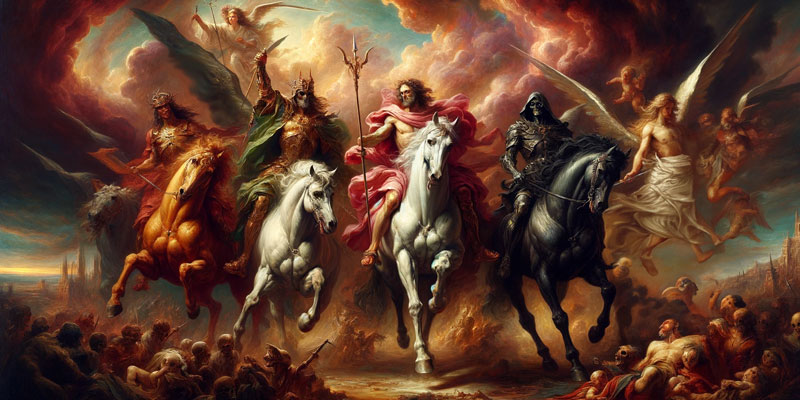
Here’s the scary thought, Rhode Island.
Nobody on your political bench can do much better than what you’re seeing now. Democracy has produced the government you actually wanted for so long that the bill is coming due. I wrote about the “Four Horsemen of Rhode Island’s Apocalypse” 15 years ago, and the situation’s only gotten worse as people not in the following four groups have left to find hope and opportunity outside of their reach:
1. Powerful insiders. These are the folks who benefit most directly from Rhode Island’s system and represent what might be termed the power base: legislators, judges (and magistrates), union executives, activist leaders (such as the crew at the Poverty Institute who get their say in just about every Journal article), and other heads of “important” institutions in the state.
2. Budget-bought political commodities. 630AM talkers Dan Yorke and Matt Allen often point to what they term the “rub ’n’ tug” system, whereby the legislature hands out non-itemized grants to community groups as offerings of endearment, but from a certain perspective, rubbing ’n’ tugging is the core function of the state government. Unions and the social-service industry can turn out people to vote and to demonstrate (often while everybody else is at work) in an industrial rub ’n’ tug with the powerful insiders.
3. The unaffected rich. Think Sheldon Whitehouse. Small in numbers, perhaps, but huge in wealth, a significant number of people in Rhode Island (which my father, in New Jersey, calls “a playground for the rich”) are free to experiment and pay ideological homage to their vanity, because no conceivable policy could have so detrimental an effect as to do more than create the possibility that some future generation will have to sell the Newport summer manse.
4. Affianced ideologues. With some substitutions of kind, but not of essence, the above groups could stoke corruption across the political spectrum. However, in Rhode Island those who give the state its blue hue are wedded to the Democrats, as are the many, generally apathetic, citizens who have somehow imbibed the notion that a vote for the Democrats is, simply by their role in the natural order of the universe, a vote for the good guys.
For decades voters in those four groups have wanted the sort of government we have, so nobody within striking range of important elective office has any idea how to govern in ways that don’t satisfy them. And satisfying them has nothing to do with ensuring sudden bridge failures don’t disrupt the lives of everybody in the region or that major employers don’t pack up and leave.
Think about it. The special interests who run the state benefit from the deterioration of our infrastructure, economy, and society. The failure of a crucial piece of infrastructure means more excuses for federal money and more people willing to pay taxes and fees just to fix the problem. The loss of major private-sector employers means, first, more people in need of government services, and second, fewer powerful institutions that might have conflicting interests to those of the insiders. Failing schools mean the possibility of more pressure for funding and government programs, not to mention a more-pliable public (while the insiders can send their children, if they have any, to private schools).
All of these incentives mean politicians currently on the radar for higher office are necessarily bought and sold, and the reality of mail ballots means nobody will be able to swoop in from off the radar. Those who’ve been hitching a ride on the four ponies will have to jump off and do something unpredictable, like think for themselves and expand their perspectives beyond narrow, immediate interests.
Featured image by Justin Katz using Dall-E 3 and Photoshop AI.

